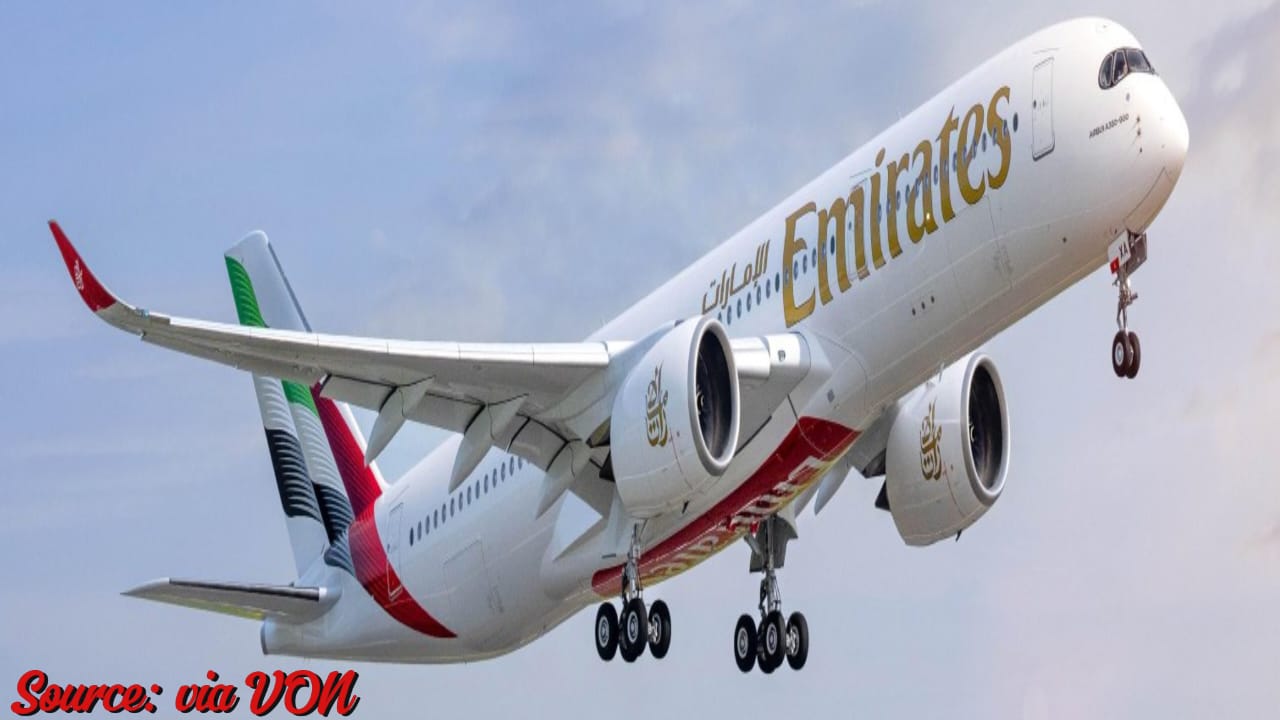Emirates Airline has officially resumed flight operations in Nigeria after a nearly two-year suspension. The airline’s decision to restore its services comes following successful negotiations between the United Arab Emirates (UAE) carrier and the Nigerian government. This resolution, announced on Tuesday, October 1, 2024, marks a significant step in reestablishing vital air travel links between the two countries, enhancing connectivity and facilitating business and tourism.
The suspension initially stemmed from financial disagreements, with Emirates Airline halting flights in November 2022 due to $85 million in unrepatriated revenue. The prolonged standoff led to a considerable reduction in flight options for Nigerian travelers and disrupted the flow of passengers between Africa’s largest economy and the Middle East.
Background: Unrepatriated Revenue Sparks Dispute- Emirate Airline
The conflict began when Emirates Airline suspended its services in response to difficulties in repatriating $85 million in revenue from ticket sales due to Nigeria’s foreign exchange restrictions. The airline had expressed frustration over its inability to access its earnings, citing this as a major impediment to continuing operations. Nigeria’s restrictions on foreign currency repatriation have posed challenges for multiple international airlines, resulting in reduced services and increased tensions.
Despite multiple discussions throughout 2023, the impasse continued, with Emirates maintaining that it would not resume flights until its funds were repatriated. The suspension not only impacted direct flights but also strained diplomatic relations between Nigeria and the UAE, which had previously enjoyed robust aviation and economic ties.
Nigeria’s Government Intervenes to Resolve the Standoff
The Nigerian government’s intervention proved pivotal in breaking the deadlock, leading to the resumption of Emirates Airline’s operations. The Ministry of Aviation played a central role in coordinating efforts to resolve the foreign exchange issues, enabling the airline to access its blocked funds. The resolution was reached after intense negotiations and policy adjustments aimed at creating a more favorable environment for foreign airlines.
This intervention was welcomed by stakeholders across the aviation sector, as it signaled a commitment to improving Nigeria’s standing as a viable destination for international carriers. Industry experts view the government’s actions as a positive development, demonstrating the importance of strategic diplomacy and economic flexibility in maintaining global airline partnerships.
Positive Impact on Business and Tourism
The return of Emirates Airline to Nigeria is expected to have a positive ripple effect on both business and tourism sectors. With the resumption of flights, Nigerian businesses can once again access the extensive Emirates Airline network, which includes major global trade hubs such as Dubai, London, and New York. This will likely facilitate smoother logistics, enhance international partnerships, and boost commerce between Nigeria and the rest of the world.
For the tourism industry, the restoration of services will open up travel opportunities for both inbound and outbound passengers, fostering cultural exchange and tourism revenue. Many Nigerians who had been deterred by limited flight options will now have greater access to global destinations, contributing to an anticipated increase in travel demand in the coming months.
Airline Industry Responds to Policy Changes
The reinstatement of Emirates Airline flights has also drawn attention to Nigeria’s broader aviation policies. Over the past year, several airlines had either reduced services or increased fares due to difficulties repatriating funds, raising concerns over Nigeria’s foreign exchange management. Emirates Airline’s return may signal a turning point, encouraging other international carriers to reconsider their stance on operating in the country.
The Nigerian government’s recent adjustments, including easing foreign exchange restrictions and improving access to repatriation channels, could pave the way for a more stable aviation environment. If successfully implemented, these changes might restore confidence among foreign airlines and ensure sustained growth for Nigeria’s aviation sector.
Strengthening Bilateral Ties
The resumption of Emirates Airline’s operations not only addresses immediate travel needs but also has long-term implications for Nigeria-UAE relations. Both countries stand to benefit from enhanced connectivity, which can stimulate economic growth, foster investment, and promote mutual understanding. Going forward, the focus will likely be on building a more resilient framework to prevent similar disruptions in the future.
The successful resolution of this issue has been lauded by aviation analysts as a testament to effective diplomacy and the strategic importance of maintaining strong international partnerships. As Emirates Airline’s reintegrates its services into the Nigerian market, stakeholders hope that this will set a precedent for constructive engagement and policy alignment between Nigeria and its foreign partners.
Table of Contents
Discover more from OGM News NG
Subscribe to get the latest posts sent to your email.














